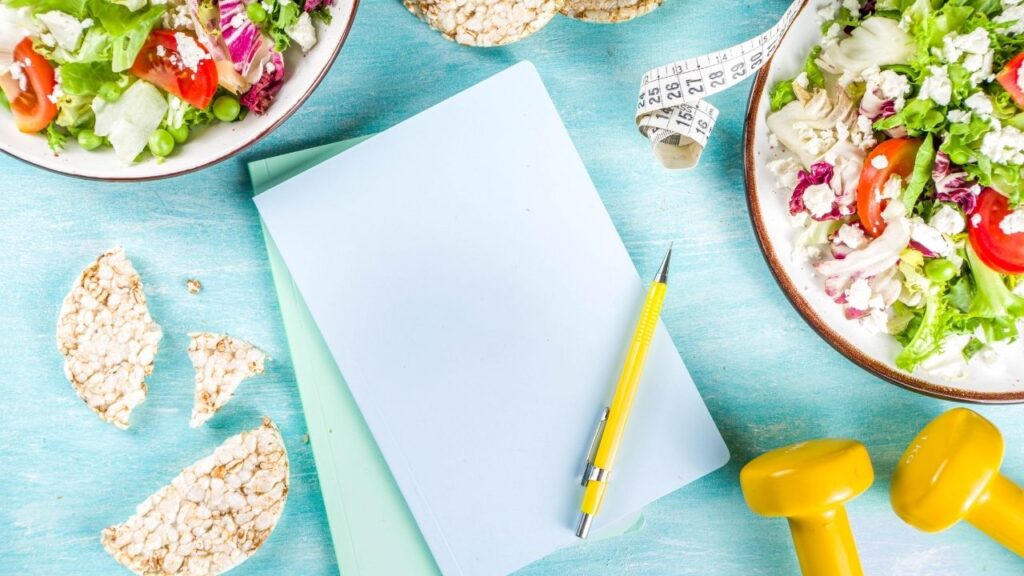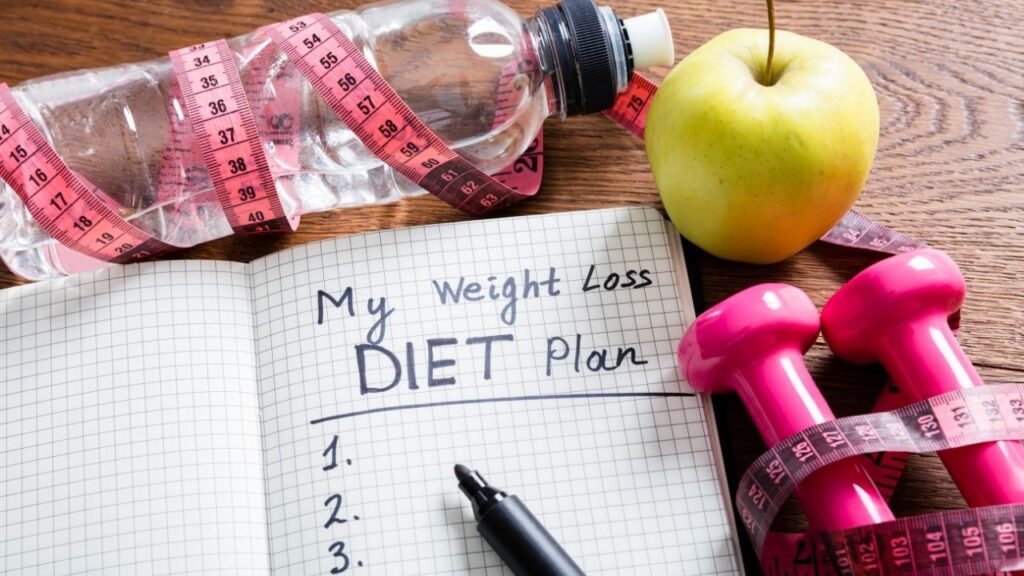
A 1200 calorie meal plan is a popular option for those looking to lose weight in a controlled and sustainable way. It’s a moderate calorie restriction that can help you create a calorie deficit without drastically depriving your body of essential nutrients. In this blog post, we will dive deep into what a 1200 calorie meal plan looks like, how to structure it for balance, and tips to make it effective and sustainable over time.
What is a 1200 Calorie Meal Plan?
A 1200 calorie meal plan is a dietary strategy that restricts your daily caloric intake to 1200 calories. This is typically considered a low-calorie diet, but it’s generally sufficient to meet most people’s nutritional needs while promoting weight loss. It’s often recommended for individuals who have a goal to lose weight and who are not engaging in highly intense physical activity.
For women, a daily intake of 1200 calories is often considered an appropriate starting point for weight loss, while for men, this calorie count may be lower than what’s needed for overall health and energy levels (usually 1500–1800 calories or more). However, this can vary depending on individual factors like age, activity level, and metabolism. It’s always advisable to consult a healthcare provider before beginning a calorie-restricted diet.
Why 1200 Calories?
The 1200 calorie target is often chosen because it’s low enough to create a caloric deficit, which promotes weight loss, but not so low that you’ll be deprived of essential nutrients. When you consume fewer calories than your body needs for basic functions, your body turns to fat stores for energy, leading to weight loss.
At 1200 calories, you’re still able to consume a balanced variety of foods from all food groups, helping to ensure that you don’t miss out on important vitamins and minerals. A well-structured 1200 calorie meal plan can also help you maintain muscle mass, stabilize blood sugar levels, and provide enough energy for daily activities.
Key Components of a 1200 Calorie Meal Plan
A healthy 1200 calorie meal plan should include a mix of macronutrients and micronutrients to ensure that the body gets the fuel it needs. Here are the key components to focus on when structuring your meals:
- Protein: Protein is crucial for preserving muscle mass and helping you feel satisfied. Aim for lean sources of protein like chicken, fish, tofu, and legumes. Protein also helps in repair and recovery, especially if you are incorporating exercise into your routine.
- Healthy Fats: While fats are calorie-dense, they are also crucial for hormone regulation, brain function, and heart health. Include moderate amounts of healthy fats from sources like olive oil, avocado, nuts, and seeds.
- Fiber: Fiber keeps your digestive system running smoothly and helps you feel fuller for longer. Include plenty of vegetables, fruits, and whole grains to boost your fiber intake.
- Carbohydrates: Carbohydrates should come from nutrient-dense sources like whole grains, legumes, and vegetables. These provide long-lasting energy without causing blood sugar spikes.
- Micronutrients: Ensure you are consuming a variety of foods to get enough vitamins and minerals, such as calcium, iron, vitamin D, potassium, and magnesium. These are vital for your body’s overall health and proper functioning.

Sample 1200 Calorie Meal Plan
Here’s an example of a well-balanced 1200 calorie meal plan. This plan includes lean proteins, healthy fats, and plenty of fiber-rich vegetables and fruits to keep you satisfied throughout the day.
Day 1
Breakfast (300 calories)
- 1 scrambled egg with spinach and 1 tablespoon of olive oil
- 1 slice of whole-grain toast
- 1 small apple
Snack (100 calories)
- 1/4 cup of mixed nuts (almonds, walnuts, cashews)
Lunch (350 calories)
- Grilled chicken breast (4 oz)
- Salad with mixed greens, cucumber, cherry tomatoes, and 1 tablespoon of olive oil and lemon dressing
- 1/2 cup quinoa or brown rice
Snack (100 calories)
- 1 small Greek yogurt (plain, low-fat)
Dinner (350 calories)
- Grilled salmon (4 oz)
- Steamed broccoli
- 1/2 medium baked sweet potato with a dash of cinnamon
Total: 1200 calories
Day 2
Breakfast (300 calories)
- 1/2 cup oatmeal (made with water)
- Topped with 1 tablespoon of chia seeds and 1/4 cup blueberries
- 1 boiled egg
Snack (100 calories)
- Carrot sticks with 2 tablespoons hummus
Lunch (350 calories)
- 3 oz turkey breast or tofu
- Salad with mixed greens, avocado (1/4), and balsamic vinaigrette
- 1/2 whole-wheat pita
Snack (100 calories)
- 1/2 banana with 1 tablespoon peanut butter
Dinner (350 calories)
- Grilled shrimp (4 oz)
- Roasted cauliflower and Brussels sprouts
- 1/2 cup cooked quinoa
Total: 1200 calories
Day 3
Breakfast (300 calories)
- Smoothie with 1 scoop protein powder, 1/2 banana, 1 tablespoon peanut butter, and 1/2 cup almond milk
Snack (100 calories)
- 1 boiled egg
Lunch (350 calories)
- Grilled chicken (4 oz)
- A mixed green salad with tomatoes, cucumbers, and an olive oil vinaigrette dressing
- 1/2 cup brown rice
Snack (100 calories)
- 1 small pear
Dinner (350 calories)
- Baked cod (4 oz)
- Roasted sweet potato wedges
- Steamed spinach
Total: 1200 calories

Tips for Success on a 1200 Calorie Meal Plan
- Plan Your Meals: Planning ahead is key to sticking to a 1200 calorie meal plan. Prepare meals in advance, so you have healthy options ready to go and avoid the temptation to overeat.
- Eat Protein at Every Meal: Protein is critical for keeping you feeling full and satisfied, which can help you stay on track with your calorie goals. Make sure to include lean protein sources like chicken, turkey, fish, tofu, and beans in every meal.
- Stay Hydrated: Drinking water throughout the day is essential for digestion, energy, and preventing unnecessary hunger. Choose water, herbal teas, or low-calorie drinks.
- Focus on Whole Foods: Aim to eat whole, unprocessed foods that are rich in nutrients. These foods will keep you full and provide the vitamins and minerals your body needs to function optimally.
- Track Your Progress: Keep track of your meals and monitor how you feel. If you’re feeling low in energy or unsatisfied, you may need to adjust your plan by adding a bit more protein, fat, or fiber.
Is a 1200-Calorie Meal Plan Suitable for You?
While a 1200 calorie meal plan can work well for many people, it’s important to approach any calorie-restricted diet with caution. It’s recommended to consult a healthcare provider or nutritionist to ensure that you’re meeting your nutritional needs and that this plan is suitable for your health goals.
This diet may be particularly beneficial for individuals looking to lose weight in a controlled, steady manner, but it’s essential to make sure you’re maintaining a balanced approach and not depriving yourself of essential nutrients. It’s also important to note that very low-calorie diets are not meant for long-term use and should be followed for a limited time, after which you’ll want to gradually increase your caloric intake.
Conclusion
A 1200 calorie meal plan can be an effective and sustainable way to lose weight, as long as it’s balanced with the right nutrients. By focusing on whole foods, lean proteins, healthy fats, and plenty of vegetables, you can nourish your body while creating a calorie deficit. Remember to listen to your body, stay hydrated, and adjust the plan as needed for long-term success.
If you’re looking to take control of your health and achieve your weight loss goals, a 1200 calorie meal plan could be the right starting point. Always ensure you have the support of a healthcare professional to make this a safe and beneficial experience.